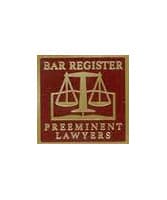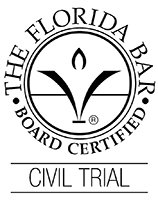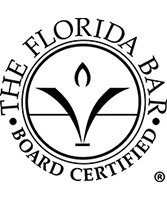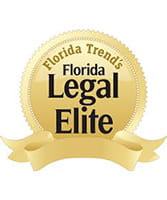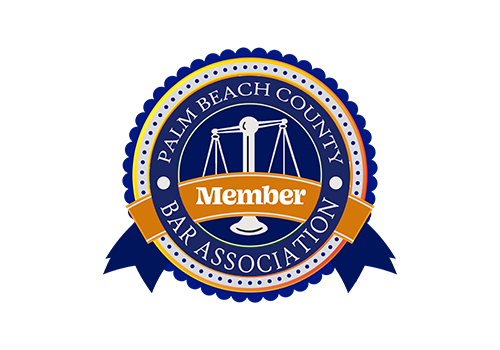If you were the victim of a rear-end car accident, Schuler, Weisser, Zoeller, Overbeck & Baxter P.A. can help you pursue the compensation you’re owed from the at-fault driver. We’ll help you hold them accountable for their actions and seek justice for the suffering you experienced.
We understand the effects of car crashes and how it can impact every area of your daily routine. If your injury is severe, expensive medical bills are likely putting a financial strain on your life. If you’re unable to maintain employment, you’re probably worrying about how to support your family.
At Schuler, Weisser, Zoeller, Overbeck & Baxter P.A., we have an experienced team of West Palm Beach rear-end collision attorneys who fill fight assertively for your rights. When you hire us, we’ll begin working on your case immediately and try to resolve it efficiently. You can depend on us to guide and support you through this traumatic time in your life. Call us at (561) 689-8180 to schedule a free consultation and seek legal action.
Why You Need a Lawyer to Help You With Your Case
Handling a complex legal case after a car accident can be challenging. It can be difficult to collect all of the evidence you need without legal resources and a thorough investigation. Schuler, Weisser, Zoeller, Overbeck & Baxter P.A. will handle every step of the legal process on your behalf, so that you can focus on your recovery.
If you get hurt in a car crash, follow these steps below so your West Palm Beach rear-end collision attorney can pursue the maximum compensation available in an insurance claim:
Step 1: Call 911 and wait for law enforcement to arrive at the scene. They’ll investigate the cause of the crash and write a traffic crash report.
Step 2: If you’re able to, take photos of the scene, including the position of the vehicles, vehicle damage, and any surrounding evidence, such as skid marks and the location of traffic lights.
Step 3: Exchange auto insurance information with the other driver.
Step 4: Write down the names and phone numbers of people who witnessed the accident occur.
Step 5: Go to the hospital. Your doctor will evaluate your injuries and refer you for follow up care. You must follow their orders and continue with medical treatment until you recover.
Step 6: Take your car to a repair shop for an estimate of the damage.
Step 7: Maintain all documents associated with the car accident. The more evidence there is, the better chance you’ll have at winning the maximum financial award available.
Step 8: Hire a lawyer.
We’ll file an insurance claim on your behalf and submit the necessary evidence proving the other person involved in the rear-end collision was at fault. When the time comes, we’ll aggressively negotiate a full and fair settlement that covers your expenses.
Why Tailgating Is Dangerous
When a driver doesn’t leave enough room between their vehicle and the vehicle ahead of them, it’s difficult to avoid a rear-end crash if the front vehicle stops or slows down suddenly. Tailgating is the most common cause of car accidents that result in a rear-end impact.
Many experts encourage motorists to follow the three-second rule. Look for a stationary object on the side of the road, such as a streetlight or parked car. When the vehicle in front passes it, begin counting the number of seconds it takes for you to pass. It should be at least three seconds or more.
If you notice someone behind you is tailgating, there are actions you can take to reduce the risk of an accident:
- Speed up as much as the speed limit allows to put more distance between your cars
- Don’t engage in road rage behaviors, such as brake-checking
- Merge to the slow lane so they can pass
- If you’re in the far left lane, pull off the road or onto the shoulder so they can pass
Tailgating is not the only reason rear-end collisions happen. Other common causes include:
- Slow-moving vehicles
- Sudden, hard braking
- Speeding
- Distracted driving
- Alcohol or drug impairment
- Traffic congestion
- Weaving in and out of traffic
- Drowsy driving
Injuries Typically Resulting From Rear-End Car Accidents
The impact of a rear-end crash can lead to severe injuries. If you’re not wearing your seatbelt, you could get ejected from your car or bang your head against the steering wheel. The most common injuries include:
- Whiplash
- Broken or fractured bones
- Internal bleeding
- Concussion
- Traumatic brain injury
- Loss of limb
- Ejection injuries
- Crush injuries
- Paralysis
Many severe injuries can lead to a permanent medical condition. If you become paralyzed, you’ll require daily assistance with routine tasks, such as getting dressed or showering. Traumatic brain injuries can cause significant damage to someone’s motor skills or memory. Other injuries might require ongoing physical therapy to manage pain.
Medical care can be expensive. If you end up with a disability, you won’t be able to maintain adequate employment. You’ll need to find a way to afford your treatment and daily living costs. Schuler, Weisser, Zoeller, Overbeck & Baxter P.A. can assist you with an insurance claim to recover a settlement that pays for your expenses and also covers your pain and suffering. You shouldn’t have to pay out of pocket for an accident that wasn’t your fault.
Who Can I Hold Liable for a Rear-End Collision?
You can pursue financial compensation from the at-fault driver, but Florida’s no-fault system requires you to seek compensation from your own auto insurance company first. Personal injury protection (PIP) is a form of coverage on every motorist’s insurance policy that comes with a minimum $10,000 limit. You have the option of choosing a higher limit when you purchase your insurance.
When you file a PIP claim, you can pay for up to 80% of your medical expenses and up to 60% of your lost wages. You must provide proof of your injury to recover compensation for your treatment. If you’re unable to return to your job due to your injury, you’ll need to fill out a lost wage form that indicates the hours and income you missed.
For many accident victims, $10,000 isn’t enough to compensate them for all of their damages. Damages are the losses associated with injuries sustained because of another person’s actions. If the other driver carries auto insurance with liability coverage, you could file a claim with their insurance company.
The damages available in a liability claim include:
- Medical bills
- Pain and suffering
- Vehicle repair or replacement
- Out of pocket costs
- Emotional distress
- Lost wages
- Disability or disfigurement
To file a liability claim, you must meet the serious injury threshold. That means your injury resulted in at least one of the following:
- Permanent and significant loss of a vital bodily function;
- Significant or permanent disfigurement or scarring;
- Permanent damage that doesn’t include scarring or disfigurement; or
- Death.
If your injury isn’t eligible for compensation from the at-fault driver’s liability insurance, you could still file a property damage claim. Their coverage should provide reimbursement of the costs associated with getting your car repaired after the crash.
What Should I Do If the Other Driver Doesn’t Have Insurance?
If your PIP claim left you with additional damages you couldn’t cover, you can supplement any leftover expenses by filing a UM claim. Uninsured/underinsured motorist is another coverage on your auto insurance policy you can use when the at-fault driver doesn’t carry liability insurance or high enough limits for your damages.
UM claims don’t cover all of the damages available in a liability claim, but they do cover the following:
- Lost wages
- Pain and suffering
- Vehicle repair or replacement costs
- Medical bills
Another option to hold the person who rear-ended you financially responsible is a civil lawsuit. There’s a statute of limitations you must comply with, which is a strict deadline. In Florida, the statute of limitations for filing a lawsuit after a car crash is four years. That means you have four years from the accident date to sue the other party for compensation.
You’re entitled to pursue the same damages that are available in a liability insurance claim. If you believe the other motorist’s actions were especially negligent, you could also attempt to seek punitive damages. Punitive damages are intended as a form of punishment for the at-fault party and aim to deter similar misconduct in the future.
To recover punitive damages in a lawsuit, you must provide clear and convincing evidence that the at-fault party exhibited the following:
- Gross negligence: Reckless behavior that showed a lack of regard for someone else’s safety, life, or rights.
- Intentional misconduct: Pursuing the wrongful actions despite knowing it could cause another person’s bodily harm.
Speak to a Dedicated West Palm Beach Rear-End Collision Attorney
At Schuler, Weisser, Zoeller, Overbeck & Baxter P.A., every client is a priority for us. When you hire us, our team will be available 24/7 to take your call. We’ll present all the legal options you have for pursuing the compensation you deserve. You can depend on our West Palm Beach car accident lawyers to guide you through the complicated legal process and provide support when you need it the most. When you hire us, we’ll fight for justice and hold the at-fault driver accountable for their actions.
If you were the victim of a rear-end car crash in West Palm Beach, contact Schuler, Weisser, Zoeller, Overbeck & Baxter P.A. today at (561) 689-8180. We’ll immediately begin working on your case and help you get on the road to recovery.



